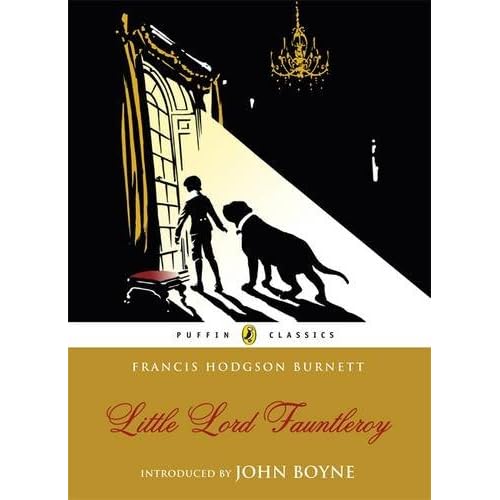 I finally have some semblance of a life again after being under the weather for an extraordinarily long time (well, "extraordinarily long" is a relative term, but it is coming up to about two months now). I read loads of my old Enid Blytons and Nancy Drews, while twiddling my thumbs and imagining all kinds of crazy things, but most of them were being re-read for about the seven hundred and twenty third time. I can actually recite some of those books without any prompts...
Right, that's a long digressive opening paragraph, which is meant to lead up to this simple statement : the only children's book (comfort read) I read during this period which I hadn't read before was Frances Hodgson Burnett's Little Lord Fauntleroy. I absolutely loved both, The Secret Garden and A Little Princess, but I'd just never managed to find this book anywhere before. Hurrah for libraries!
I finally have some semblance of a life again after being under the weather for an extraordinarily long time (well, "extraordinarily long" is a relative term, but it is coming up to about two months now). I read loads of my old Enid Blytons and Nancy Drews, while twiddling my thumbs and imagining all kinds of crazy things, but most of them were being re-read for about the seven hundred and twenty third time. I can actually recite some of those books without any prompts...
Right, that's a long digressive opening paragraph, which is meant to lead up to this simple statement : the only children's book (comfort read) I read during this period which I hadn't read before was Frances Hodgson Burnett's Little Lord Fauntleroy. I absolutely loved both, The Secret Garden and A Little Princess, but I'd just never managed to find this book anywhere before. Hurrah for libraries!
There's something about children's books and being ill.* They're just feel-good, and take you away to this "happy place," where you're thinking rainbows and butterflies, without actually resorting to LSD or 'shrooms or any other illegal substance. Little Lord Fauntleroy is no exception.
A story set in the late nineteenth century, it focuses on eight year old Cedric Errol who lives with his mother (who he calls Dearest) in a New York side-street, after his father, Captain Errol, passes away. Everyone is extremely fond of the boy, with his "quare little ways" and "ould fashioned sayin's!"
"'Ristycratic, is it?" she would say. "Faith, an' I'd loike to see the choild on Fifth Avey-NOO as looks loike him an' shteps out as handsome as himself. An' ivvery man, woman, and choild lookin' afther him in his bit of a black velvet skirt made out of the misthress's ould gownd; an' his little head up, an' his curly hair flyin' an' shinin'. It's loike a young lord he looks."
One day, out of the blue, a lawyer from England visits the mother and child, and breaks the news to them : Cedric, the grandson of the Earl of Dorincourt, was to become Earl someday, as both his uncles had passed away in the recent past. Probably not the best of comparisons, but think The Princess Diaries.
However, unlike the princess in The Princess Diaries, Cedric already exudes lordship: sensitive to others, generous and always wanting to help those he can. If that's not enough, he's also polite, respectful and fearless, completely oblivious to class differences and the prejudices that rule the world. For instance, how his grandfather, the Earl, had disowned his son when he married an American commoner. So, that's the grandfather - the polar opposite of Cedric; a crabby old man, who no one likes and who, in turn, cares for no one. Or, is it vice versa?
The rest of the book is essentially about the interaction between the grandchild and the grandfather, and how the latter is won over by the innocence and good-heartedness of the child. It's weird, and so unreal, but I just couldn't help rooting for that perfect happy ending, simply because that's all I wanted from the book. In another world, you could have the the impressionable child being more swayed by his grandfather, and becoming just like him! Or, a brattish spoilt child being the person to inherit the estate. But, no! None of that dark miserable stuff was in this book (thankfully - it was just what I needed after reading The Fifth Child).
I thoroughly enjoyed it, and am really glad that I read it when I did. However, I still can't help but strongly believe that The Secret Garden is miles better! I really must re-read it someday soon. I'm now wondering if I should venture into some of Burnett's books for adults. I've not read any, but have seen a fair few reviews on The Making of a Marchioness and The Shuttle, both of which have been published by Persephone.
What other works by Frances Hodgson Burnett would you recommend? And, do you have any favourite "comfort-reads" that simply must be read?
*Verity had a couple of posts on comfort reads and children's books a few weeks back as well (here and here). I couldn't agree more with some of her recommendations and selections.